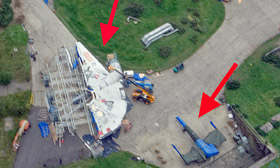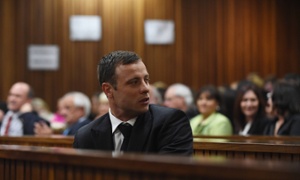
Internet users who visit a website are safe from the threat of a copyright lawsuit, thanks to a landmark case which concluded in the European court of justice on Thursday.
The court ruled that browsing and viewing articles online doesn't require authorisation from the copyright holder, settling a row between the PRCA, the industry body for Britain's PR industry, and the Newspaper Licensing Authority (NLA), which had raged for five years. The fight began in a copyright tribunal between media monitoring firm Meltwater and the NLA.
The ECJ ruled that European law "must be interpreted as meaning that the on-screen copies and the cached copies made by an end-user in the course of viewing a website satisfy the conditions… and that they may therefore be made without the authorisation of the copyright holders."
Ben Allgrove, who led the legal team that represented the PRCA in court, said that "the question, which was clearly significant enough for both sides to fight it all the way through the high court, supreme court and European court of justice, was around whether the copying that occurs when you browse the internet triggers copyright claims for the recipients… It is a fundamentally important question of copyright law."
Technical copies
When internet users browse the web, their computer makes a copy of the webpage they are visiting in order to display it on the screen.
Francis Davey, an independent barrister who specialises in copyright law, argues that a part of EU law known as the temporary copying exception was "intended to avoid anyone having to worry about all that from a copyright perspective".
"The way copyright law is constructed might make it awkward if, in principle, you always needed permission from a copyright owner to browse material made available on the web (lawfully, by that copyright owner)," Davey told the Guardian.
"I think this decision is a good thing, because it makes it clear that browsing lawful material on the web is not a potential infringement, but I don't think we have reached the end of the story."
The NLA is the body which licenses businesses to distribute reproductions of newspaper content, including that of the Guardian. It had argued that the fees PR firms pay for those reproductions should take into account the copies made on the reader's computers, and had won on that point in the UK's high court.
But its managing director, David Pugh, argues that the point of law at stake is narrower than the PRCA made out.
"In our view, [the temporary copying] exception is designed to protect ISPs and telecoms companies when they're transmitting data from A to B in networks. The PR spin put on this case was that if our ruling was allowed to stand then users of the internet would be criminalised for using a browser, but that's never been what it's about."
Allgrove agrees that "for the vast majority of mums and dads and sons and daughters, that probably is a fair analysis." But he argues that the principle at stake remains important.
"The real question here is should the internet be one where browsing is permitted or where it's permissible. The NLA's view is that it should be permissible, so that it can pick and choose: it wanted to charge media monitors, but it didn't want to charge Mr and Mrs Smith."
"Even if the NLA's members had kept to that, other publishers would be able to pick and choose who reads their website. The NLA's view would, in effect, have said 'look, you can plaster up a billboard, and then charge some people for reading it.'"
Pugh declined to comment on what the law would have permitted had the NLA won, but argued that "the immediate impact is that there is no impact. This ruling does not change the fact that Meltwater needs a license to copy your content."
"A very tiny exception"
Dominic Young, a former chairman of the NLA, argued that 2013's supreme court case, which the ECJ concurred with, misapplied the temporary copying exemption.
He wrote that the exemption "was created to avoid a situation in which the copies made, for example, in a router as it passes data from one machine to another, were infringing and therefore became the focus of legal actions or problems."
"The law is written to say that in limited circumstances a very tiny exception to copyright law is created," Young continued. But, he argued, the supreme court's "judgment broadens those circumstances to include almost any activity by end-users on the internet".
The battle between Meltwater and the NLA started in a copyright tribunal, which ruled that the NLA had to reduce the fees it charged to media monitors. The NLA appealed to the high court, and won on two points of legal principle.
The first, that internet users need a license for temporary copies of webpages stored on their computers, was overturned on Thursday.
The second point was that headlines can be covered by copyright, even if they are only reproduced to link back to the original article. That ruling still stands.
• Google ethics adviser: The law needs bold ideas to address the digital age













